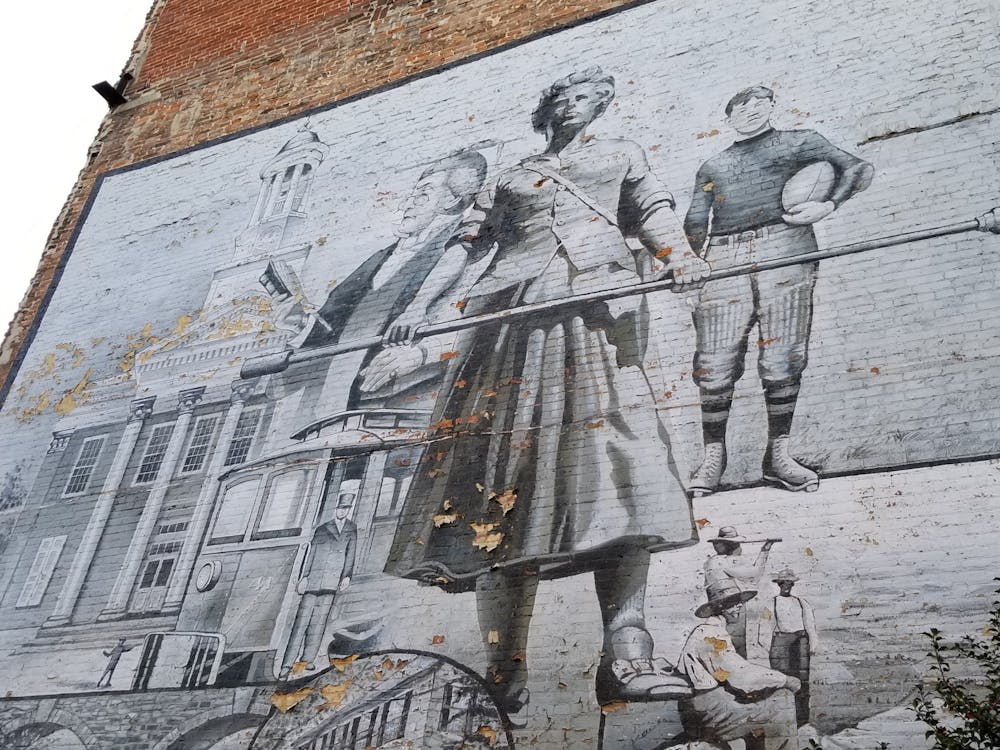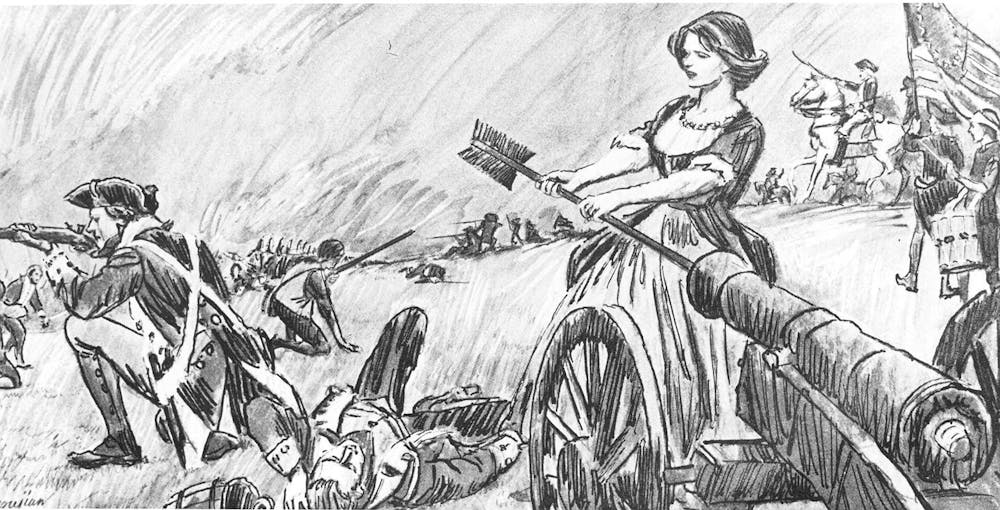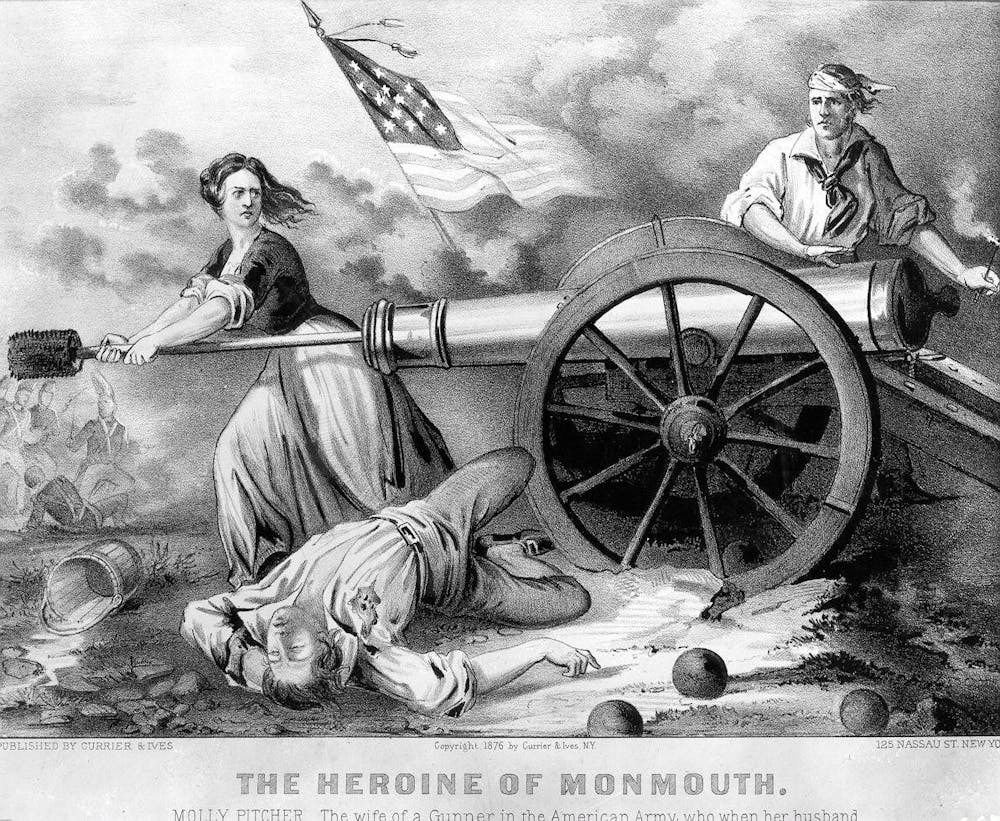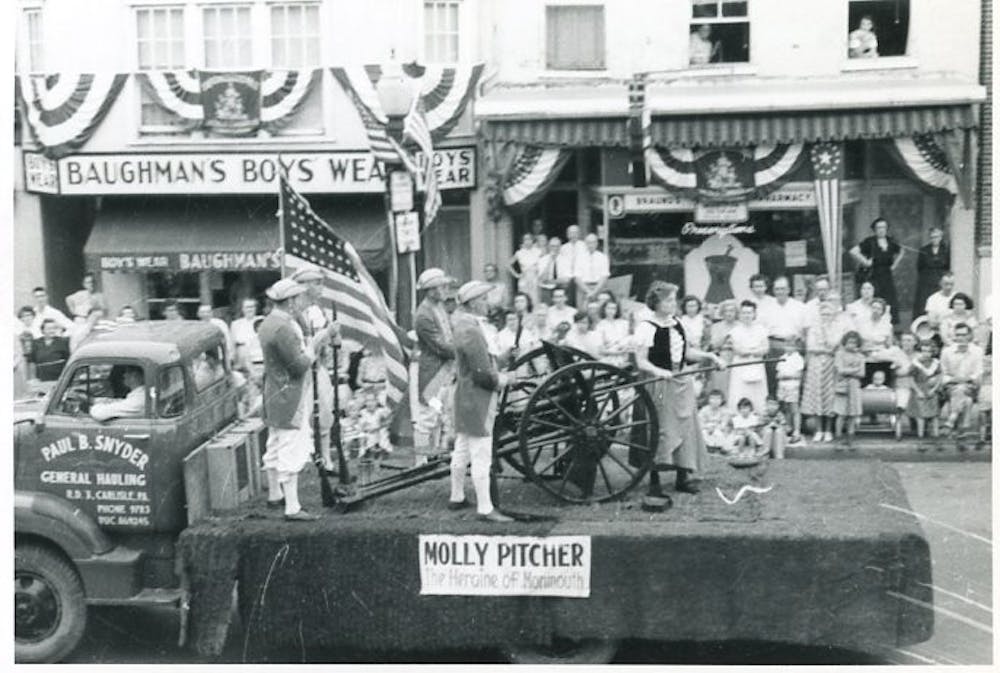Located on High Street in Carlisle, Pennsylvania, is the brewery, Molly Pitcher Brewing Co. It’s not too difficult to see Molly’s name on a stroll around town, whether it’s a brewery, apartment building, plaque or even her large statue found in the Molly Pitcher Cemetery. But who is Molly Pitcher?
While the answer lies muddied in mostly unrecorded history, historians have reasons to believe that Molly Pitcher was only a slang term used in the Revolutionary War to describe women who carried pitchers of water for the troops and that there were many Molly Pitchers.
Steven Burg, a Shippensburg University history professor and the department chair, explained that while there were many women who served in the Revolutionary War, the one most often referred to in Carlisle is Mary Ludwig Hays.
Located on High Street in Carlisle, Pennsylvania, is the brewery, Molly Pitcher Brewing Co. It’s not too difficult to see Molly’s name on a stroll around town, whether it’s a brewery, apartment building, plaque or even her large statue found in the Molly Pitcher Cemetery. But who is Molly Pitcher?
“She is someone who is very well documented in terms of she what did,” Burg said.
Burg explained that Hays joined the Continental Army to follow her husband, as many wives did during the war.
Cara Curtis, the library and archives director at the Cumberland Valley Historical Society, explained that proving the stories of various Molly Pitchers, including the famous story of Mary Hays at the Battle of Monmouth, is extremely difficult. However, by referencing a U.S. government pension given to Mary Hays for “services rendered,” historians can confirm that she was somehow active in the Battle of Monmouth.
Burg described a soldier’s diary that mentioned Mary Hays helping man a cannon after her husband, William Hays, went down. Small diary entries and notes are the closest thing historians have to reference besides the pension. As such, the accuracy of Hays’ story is hazy at best.

The storytells of Mary Hays’ husband either being wounded from the fight or collapsing due to the extreme heat. Mary allegedly stepped into her wounded husband’s place and manned the cannon at the Battle of Monmouth. Later, an enemy cannonball flew between her legs, narrowly missing her and tearing her petticoat, according to battlefields.org. The story goes that General George Washington then promoted Hays to a non-commissioned officer for her courageous acts and gave her the nickname “Sergeant Molly.”
Following the war, Hays and her husband returned to their home in Carlisle. William later died, and Mary remarried.
The exact details of the story are often debated, Curtis explained.
“I don’t think a cannon ball went through her legs. I don’t think she talked to George Washington. She served the country in some way that the Pennsylvania Legislature thought she deserved her own pension,” Curtis said.
Hays has descendants who remain in the area. These people are able to join the “Daughters of the American Revolution” if they can prove a connection to a patriot.
To learn more about Mary Hays or any of the Molly Pitchers, visit battlfields.org or the Cumberland Valley Historical Society.







The Slate welcomes thoughtful discussion on all of our stories, but please keep comments civil and on-topic. Read our full guidelines here.